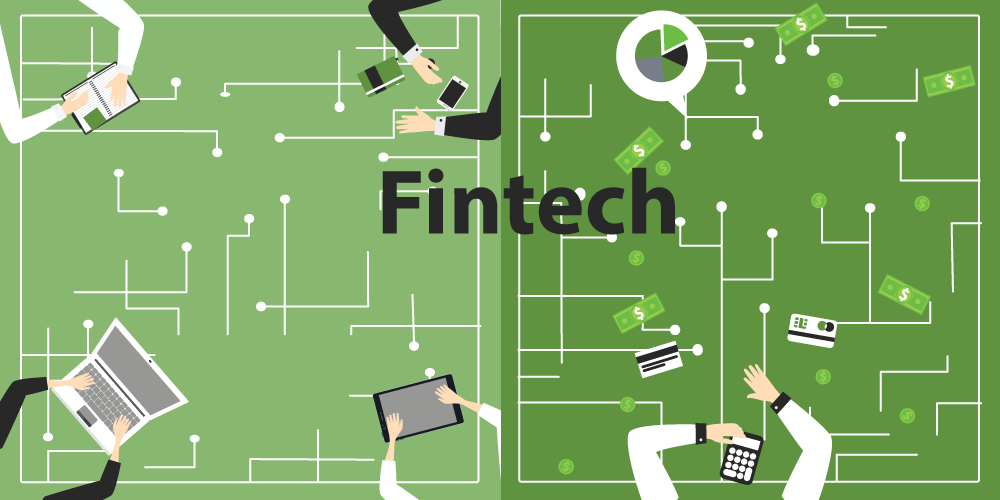Fintech is turning traditional banking on its head. The global fintech market value projects to surpass $300 billion by the end of 2022. In December, major consumer fintech company Bill.com surged a whopping 60% on the day of its IPO. New startups appearing monthly to earn a share of the pie.
At their core, most companies in fintech want to provide a great experience. They want to help their customers earn and save more. Different businesses take different paths toward that goal, though. And, many of them use highly complicated language to explain their methods.
How does blockchain technology make banking more secure? What kinds of banking services will people in the 2020s need? How will the businesses and buyers of the future interact with one another, and what are fintech companies doing to facilitate those interactions?
Cut through the noise of fintech trends and check out this list on what to expect from fintech over the next few years.
Table of Contents
Toggle1. Easy peer-to-peer transactions
Remember how it felt to split the check in the 2000s when half the people at the table had big bills and the other half only had debit cards? Those days are long gone. Thanks to new developments in fintech, peer-to-peer transactions have become a daily ritual. Users can send one another money with apps like Venmo or PayPal. Many large banks now use Zelle to cut transfer times from days down to seconds.
These helpful systems don’t just allow people to send each other money. Peer-to-peer lending services bring a crowdfunding component into the lending process. This connects investors who want good returns with borrowers who want fair rates. As more consumer fintech innovators find new ways to take third parties out of the equation, people will enjoy more flexibility in their day-to-day money management and overall financial strategies.
2. Simpler accounts without the fees
The big banks of the world won’t disappear any time soon. But, today’s consumers have more options than ever before. People don’t have to pay maintenance fees and surcharges for ATM usage. A new crop of customer-friendly banks, lenders, and service providers offer banking services that don’t feel like a corporate rip-off.
Consumers are also more informed about how to use tools like prepaid debit cards to manage their money and earn rewards for their spending. Many consumer fintech companies and apps help users track their financial lives in easy-to-understand formats. Some even move money into savings automatically or provide perks to customers who demonstrate healthy financial habits. These companies have created a new expectation in the financial industry that says customer well-being, not greed, reigns supreme.
3. Automated assistance and security
In consumer fintech and everywhere else, customer experience has become the top differentiator for the best companies. Consumers are now accustomed to personalized recommendations and assistance, and when companies can’t meet that expectation, people quickly begin to look elsewhere. Fintech, which deals with deeply personal matters of money, is leading the charge on superior experiences into the new decade.
Chatbots, for example, help users better understand their financial options and take care of basic tasks without requiring users to talk to customer service agents. Automated security measures reduce human touchpoints, helping companies detect and prevent fraudulent charges — one of the worst experiences for any customer. As fintech companies lean more heavily on advanced tools, like AI and blockchain, these automated conveniences will grow even more helpful.
4. Blockchain-powered improvements
Most people know about Bitcoin and blockchain, but not many consumers can explain how they work. Fintech companies, on the other hand, are all-in on blockchain technology. By leveraging this powerful yet misunderstood tool, fintech companies can slash processing times, dramatically reduce risk, and create total transparency in all kinds of financial transactions.
Thanks to this technology’s decentralized nature, blockchain can provide more trustworthy information than any other technology. Unique signatures can verify the authenticity of documentation and accounts with absolute certainty. This greatly speeds up processes like mortgage lending where borrowers and lenders must exchange massive stacks of paperwork. As banks and fintech companies lean on blockchain for more than just cryptocurrency, end users will enjoy a new world of upgraded convenience and security.
The top minds in consumer fintech are working diligently at startups and within the innovation arms at big companies to outdo the competition on customer experience. Trends in fintech evolve as quickly as the technologies within the industry. It only takes one revolutionary new company or discovery to turn an industry on its head. No matter who comes out on top of the industry, fintech’s continued growth will lead to wins for everyone.















